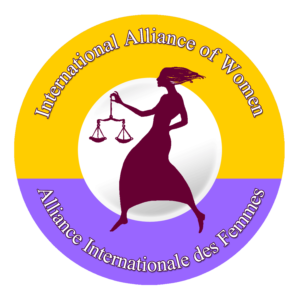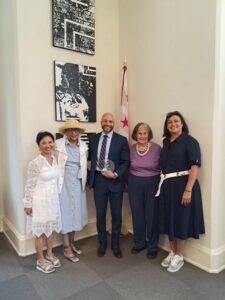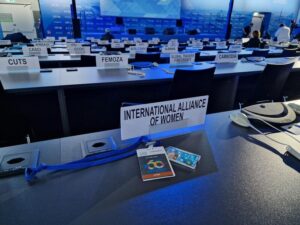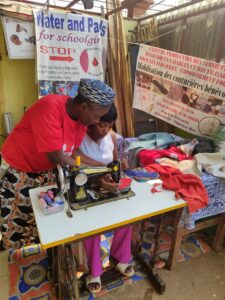 Open Letter to ECOSOC regarding the Committee on NGOs
Open Letter to ECOSOC regarding the Committee on NGOs
To: Member States of ECOSOC
Cc: President of the General Assembly, President of the Human Rights Council, Member States of the UN General Assembly, UN Secretary General.
Excellencies,
We write to you regarding the ECOSOC Committee on NGOs (the Committee), which recommends approval of the participation of non-governmental organisations in a range of UN bodies and processes. ECOSOC Resolution 1996/31—which provides the mandate for the work of the Committee— acknowledges ‘the breadth of non-governmental organisations’ expertise and the capacity of non-governmental organisations to support the work of the United Nations.’
We are concerned about recent actions taken by the Committee suggesting it functions in a politicised manner, particularly in regard to its consideration of applications for consultative status from human rights organisations. We therefore call on UN Member States to ensure that the Committee upholds and respects the rights to freedom of expression and association and accords due process to all applicants for consultative status.
Several States have criticised the practice of the Committee in ECOSOC meetings. In 2015, Chile, Mexico and Uruguay, as well as the European Union, expressed strong concerns about the recent politicisation of the work of the Committee, in which some Committee members use procedural tactics to block certain organisations from being granted consultative status. The European Union noted that withdrawal of consultative status might be used as a form of reprisal for the activities of NGOs. Chile, Mexico and Uruguay called for greater transparency in the work of the Committee, recommending webcasting of Committee sessions.
In his 2014 report to the General Assembly (A/69/365), UN Special Rapporteur on the Rights to Freedom of Peaceful Assembly and of Association, Mr. Maina Kiai criticised the multiple deferrals and perpetual questioning of some applications by Committee members. He noted that ‘(m)ember States and the UN have a legal obligation to strengthen civil society participation in the UN, including by ensuring that people can exercise their rights to freedom of peaceful assembly and of association in multilateral arenas.’
At its most recent session in January 2016, the Committee voted to close an NGO’s application on the basis that its work was contrary to the UN Charter, and then voted to deny the organisation the right to engage in dialogue with the Committee and address the allegations. This was condemned in ECOSOC by US Ambassador Mendelson who said that Committee members were using the body ‘to subvert the purpose of the Committee by further restricting civic space at the UN and blocking or deferring NGO applications on non-substantive grounds’.
As the parent body, ECOSOC must ensure that the practice and procedures of the Committee are in keeping with the principles, spirit and purpose of ECOSOC resolution 1996/31, and in strict compliance with international human rights standards.
The practice and procedures of the Committee should thus be uniformly applied, apolitical, fair, transparent, non-discriminatory, consistent and expeditious. The practice and procedures should not be used to block accreditation through repeated questioning and persistent deferrals. ECOSOC must not allow its Committee’s procedures and powers to be abused by imposing de facto restrictions on freedom of opinion and expression or freedom of association in violation of international human rights standards.
ECOSOC, and its NGO Committee, should demand that States fully respect the Declaration on Human Rights Defenders, GA res 53/144 (1998), which affirms “the right, individually and in association with others, to unhindered access and communication with international bodies.” Instead, far too many of the Committee’s arbitrary actions appear themselves to pose an unacceptable hindrance to such access, whether by design or in their impact.
ECOSOC should explicitly affirm the need for the NGO Committee to ensure that its own processes fully respect international human rights standards, including by ensuring full respect for the right of NGOs at risk of adverse decisions to be heard by the Committee, by excluding any decision motivated by discrimination of any kind, and by committing itself to upholding the right of everyone to unhindered access to international human rights bodies.
Specifically, ECOSOC should take into account the recommendations set forth by Chile, Mexico and Uruguay and institute webcasting sessions of the Committee to encourage transparency in its operations and enable NGOs whose applications are being considered by the Committee to follow proceedings.
Furthermore, when putting themselves forward for membership of the Committee, Member States must remember their responsibility to comply with international human rights standards, including obligations to uphold the rights to freedom of association and expression.
Unfortunately, the practice of the Committee is reflective of growing restrictions on civil society globally at the very time restrictions at the national level make access to the UN all the more crucial. The members of ECOSOC should take into account the recommendations above in order to promote a safe, transparent and enabling environment for civil society at the UN. By fostering such an environment, the UN can take full advantage of the particular expertise and insights provided by NGOs while protecting the legitimacy and credibility of its work.
Yours sincerely,
Joanna Manganara
President
International Alliance of Women



